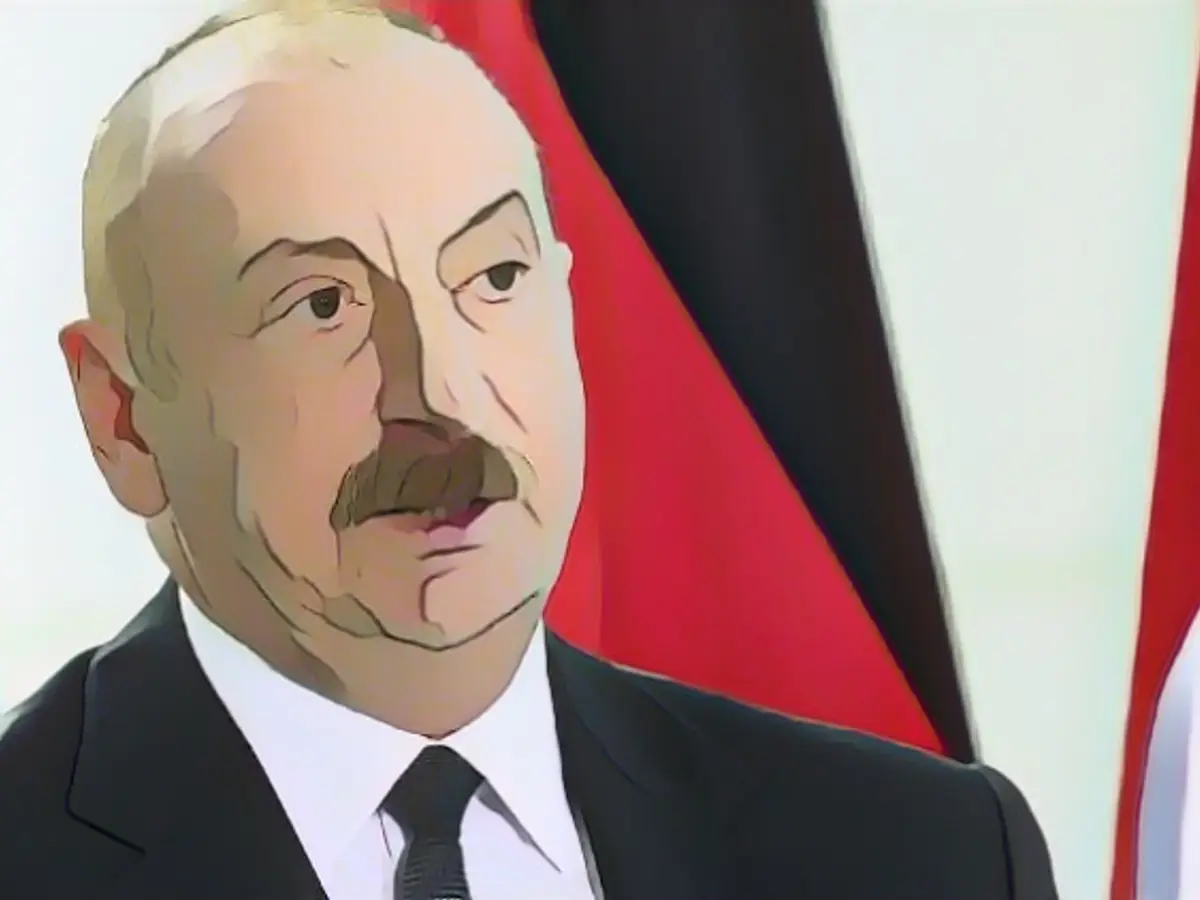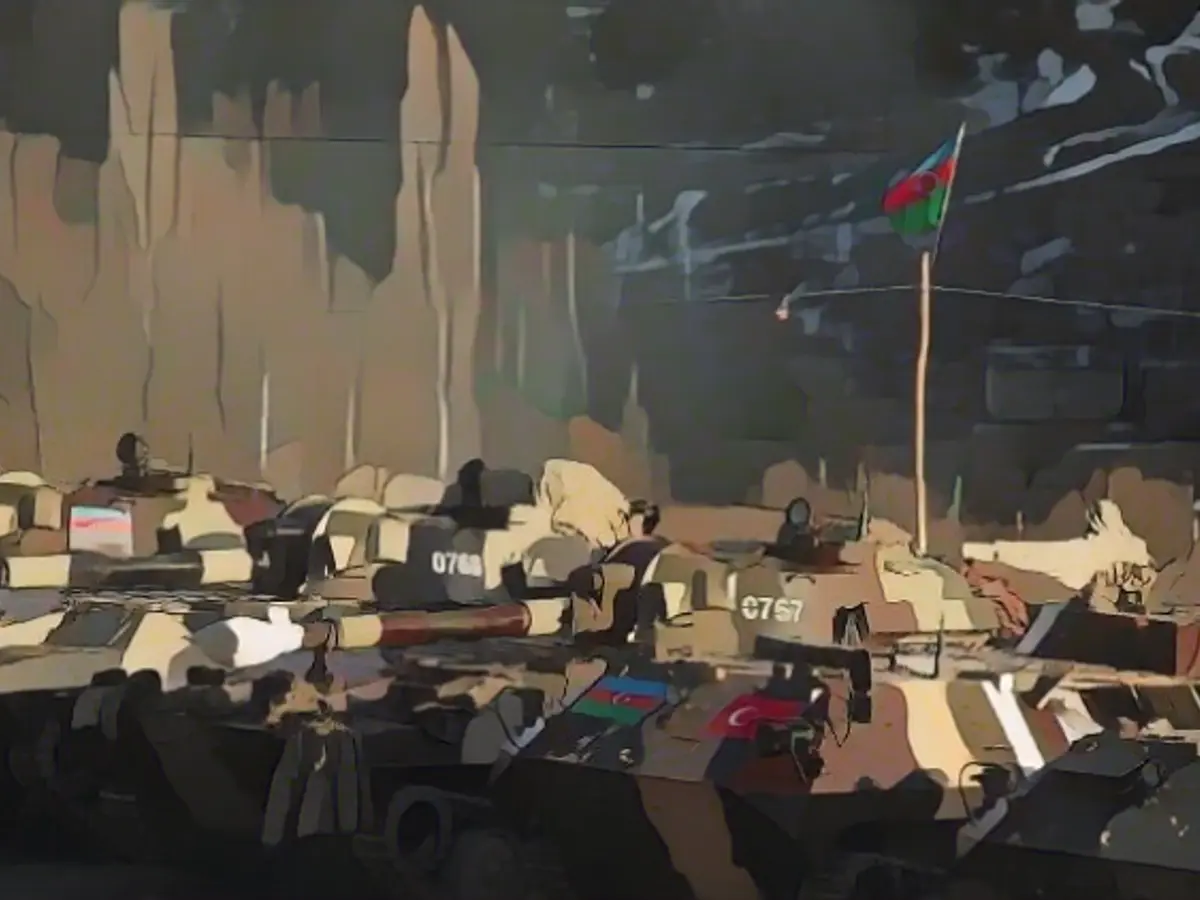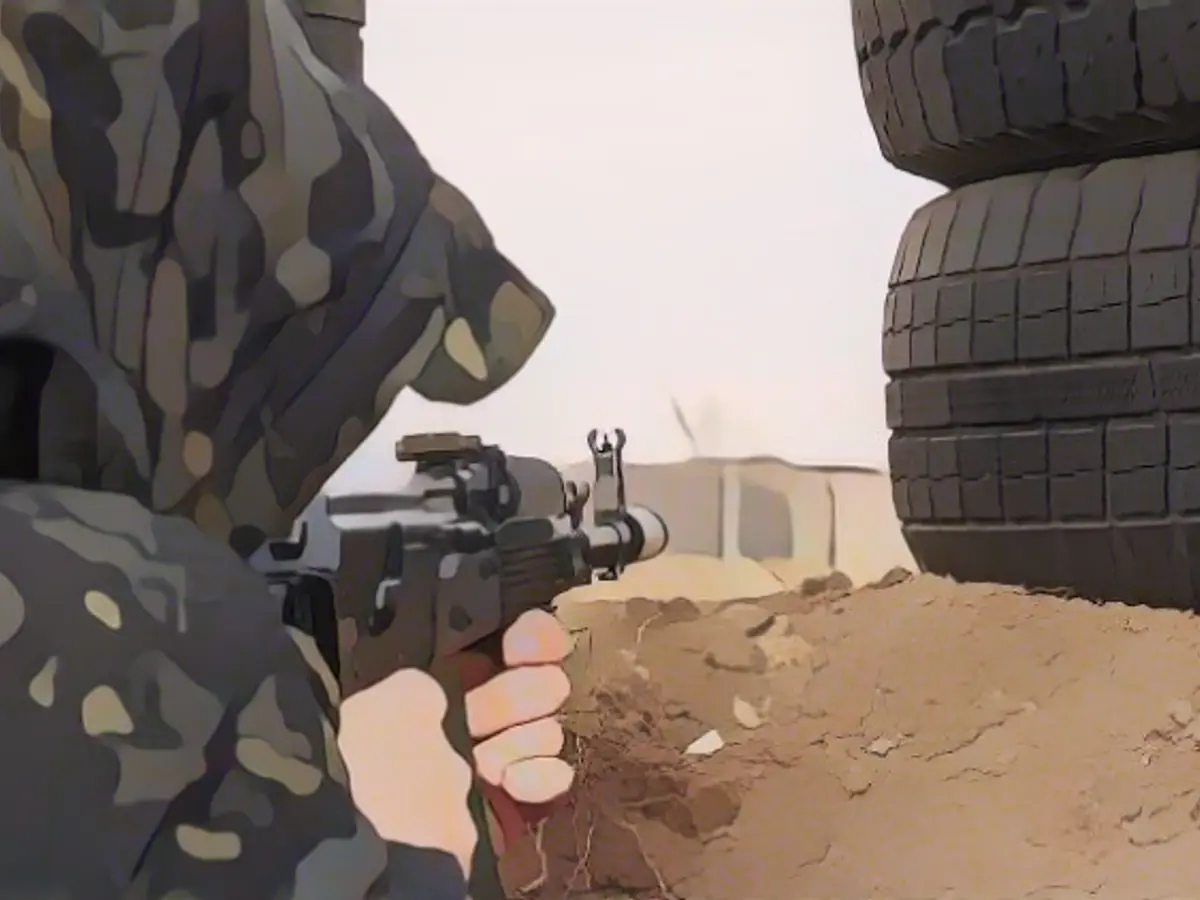Azerbaijan Lays Blame on France for Stirring Trouble in the Caucasus
In a fiery speech at a conference in Baku, Azerbaijan's President Ilham Aliyev accused France of stirring up conflict in the Caucasus. Aliyev labeled France's actions as "destabilizing" the region and a dangerous pursuit of a militaristic policy by arming Armenia. This accusation follows France's supply of weapons to Azerbaijan's foe, Armenia.
Tensions between Azerbaijan and Armenia have been simmering for decades over Nagorno-Karabakh, a region that was predominantly inhabited by ethnic Armenians and legally belongs to Azerbaijan. In September, Azerbaijan seized the region after a large-scale military offensive, forcing nearly all its 120,000 Armenian inhabitants to flee.
Despite ongoing peace talks mediated by the EU, Azerbaijan has rejected recent negotiations with Armenia, first in Spain and then in the USA. Baku cited bias on the part of France and the United States, claiming that their military aid to Armenia was destabilizing the region.
The enmity between the two nations, sparked and fueled by France's arms deliveries, has only magnified regional tensions. Azerbaijan views these actions as a part of France's dangerous militaristic agenda with the potential to ignite new conflicts in the region.
- Azerbaijan's President Ilham Aliyev criticizes France for arming Armenia, arguing that this action intensifies tensions in the Caucasus and threatens regional stability.
- The arms deliveries to Armenia, as accused by Azerbaijan, contribute to an escalation of the conflict between the two neighboring countries in Nagorno-Karabakh.
- Azerbaijan asserts that the provision of advanced military systems to Armenia undermines efforts to achieve lasting peace.
- The growing dependence on French military equipment is perceived as a strategic risk for the region, as it brings a new player with uncertain interests and allegiances.
France, driven by geopolitical and geoeconomic interests, has become involved in the dispute without appearing to maintain a neutral stance. This perceived bias prejudices France's role as a mediator and raises doubts about the potential for a peaceful resolution to the ongoing conflict.
Sources: Enrichment Data: Azerbaijan's grievances against France are substantiated by several factors:
- Increased Militaristic Capabilities: Azerbaijan contends that Armenia's expanding military capabilities, backed by France, present a grave threat to regional peace. This includes the supply of sophisticated weaponry such as Bastion armored personnel carriers, CAESAR 155mm self-propelled artillery systems, and Mistral air defense systems.
- Tension Amplification: The arms deliveries are viewed as intensifying regional tensions and impeding the achievement of a lasting peace between Armenia and Azerbaijan. Azerbaijan perceives these arms transfers as directly contradicting calls for de-escalation and counterproductive to peace initiatives.
- Historical Reliance on Russia: Azerbaijan draws attention to Armenia's historical reliance on Russian military equipment, which has shifted to a growing dependence on French military equipment. This transition is perceived as a strategic risk for the South Caucasus, as it introduces a new player with unclear motivations and affiliations.
- Geopolitical Interests: France's engagement in the region is largely determined by geopolitical and geoeconomic interests, which Azerbaijan interprets as favoring Armenia. This perceived bias damages France's reputation as an impartial mediator in the conflict.
- Aliyev's Warning: Azerbaijan's President Ilham Aliyev has warned France and other nations supplying weapons to Armenia that continuing to do so will lead to even greater tensions. He emphasized the urgent necessity for Armenia to discontinue its weaponry procurement and for the region to avoid another military confrontation.






